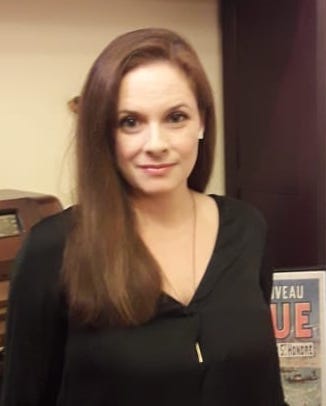Project title
Performing Classical Visions: Uses of Antiquity in Fascism and Neofascism
Research question
The project investigates appropriations of antiquity in the contexts of historical fascism and the contemporary far right, looking at invocations of the classical past within live events. My research question is: how is antiquity reimagined, represented, and experienced in these events, and how do the visions of the classical serve fascist and neofascist ideologies?
Project description
The turn to classical antiquity in Fascist Italy and Nazi Germany served the regimes in creating the image of an idealised past when the nation used to be pure and great. The relationship with this past was not only rhetorical but was set in motion through live events: theatrical stagings, classical re-enactments, commemorations, political pageants, and festivities. During such events, the regimes of Mussolini and Hitler presented themselves as successors of the civilisations of Greece and Rome. The fascination with the classics is observed in the neofascist and far-right movements which have made inroads into the political landscape amidst recent economic and democratic crises. The neo-Nazi party Golden Dawn in Greece performed rites at the monument of Leonidas in Thermopylae, whilst the neofascist CasaPound Italia and the European Identitarian movement made use of ancient-looking insignia and props in their public gatherings. On some occasions, the references to the classics celebrated national histories, whilst on others, they invoked a common European heritage to support their anti-immigration, xenophobic, and racist political ideologies.
The project has a twofold, interrelated focus: The first part examines the efforts of Nazi Germany and Fascist Italy to revive the classical worlds through performative means, e.g., in classical re-enactments in monumental spaces. The second part explores uses of antiquity in the political gatherings and cultural events of neofascist movements in contemporary Europe. By scrutinising the mechanisms of live performance deployed to revive the ancient past, the project aims to investigate the importance of corporeal and affective practices in reinforcing discourses of national, cultural, and racial supremacy.
Selected publications
– Ioannidou, Eleftheria. Mythologies of Genesis and Neo-Nazi Palingenesis: Commemorating the
Battle of Thermopylae in the Political Rites of the Golden Dawn’. Special issue Greek Mythology and Modern Culture: Reshaping Aesthetic Tastes. Edited by Philp Zapkin and Kevin Wetmore. Humanities [forthcoming]
– Ioannidou, Eleftheria. ‘The Sweet Vitality of the Dancing Bodies: Classical Embodiment and Fascist Visions in Sophocles’ Trachiniae at Syracuse in 1933’. In Hercules Performed. Edited by Emma Stafford. Brill Publishers: Leiden. [forthcoming]
– Ioannidou, Eleftheria. ‘Chorus and the Vaterland: Greek Tragedy and the Ideology of Choral Performance in Inter-War Germany’. In Choruses, Ancient and Modern. Edited by Joshua Billings, Felix Budelmann and Fiona Macintosh, 327-45. Oxford: Oxford University Press, 2013.
– Ioannidou, Eleftheria. ‘Toward a National Heterotopia: Ancient Theaters and the Cultural Politics of Performing Ancient Drama in Modern Greece’. Comparative Drama, 44-45.4-1 (Winter-Spring 2011): 385-403.
– Ioannidou, Eleftheria. Greek Fragments in Postmodern Frames: Rewriting Tragedy, 1970-2005. Oxford: Oxford University Press. 2017.
